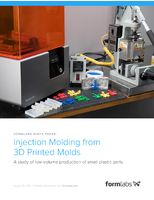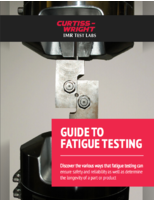IPC Midwest helps prepare companies for green movement.
Share:
Press Release Summary:
Scheduled for Sept 22-25, 2008, IPC Midwest Conference and Exhibition will include programs to help companies understand facts and distinctions of various regulations and initiatives, with special emphasis on grasping true impact of REACH on their businesses and future. Half-day courses, technical sessions, and standards development meetings will address REACH regulation, halogen-free initiatives, and continued activities with RoHS.
Original Press Release:
Environmental Sessions At IPC Midwest Help Electronics Companies Prepare For Latest In Green Movement
BANNOCKBURN, Ill., USA, August 25, 2008 - REACH is picking up speed. RoHS is in the midst of revisions. The marketing demand for halogen-free is rising quickly. With all these green initiatives, comes confusion, misunderstanding and capitulation - as evidenced by the results of a recent survey of electronics companies on REACH preparedness which showed that more than 40 percent of manufacturing and purchasing personnel have no understanding of the REACH regulation as it affects their companies. To help companies understand the facts and distinctions of these regulations and initiatives, and with special emphasis on grasping the true impact of REACH on their business and future, a number of programs regarding environmental issues will be offered at IPC Midwest Conference & Exhibition. The show will be held September 22-25, 2008, at the Renaissance Schaumburg Hotel & Convention Center, Schaumburg, Ill.
IPC Midwest will feature half-day courses, technical sessions and standards development meetings addressing the REACH regulation, halogen-free initiatives, and continued activities with RoHS. Starting Monday, September 22, "REACH Basics and Strategies for Compliance and Business Risk Assessment," will devote the entire morning to shedding light on how this broad and far-reaching chemicals policy has the potential to impact every use of chemical substances throughout a company's supply chain. "Many companies still believe that REACH will not touch them because they don't have all the facts," said Tony Hilvers, IPC vice president of industry programs. "Unfortunately, REACH makes RoHS trivial by comparison." A two-part session on REACH compliance and the global supply chain will also be offered on Thursday morning, September 25.
A comprehensive, soup to nuts primer on halogen-free and brominated flame retardants will take place Monday afternoon, September 22. "This intense, three-hour course will give attendees the latest information on the environmental issues, applicable regulations, current research and technical hurdles associated with these green targets," said Fern Abrams, IPC director of environmental regulations and government relations.
Standards development meetings focused on environmental issues will be held September 23 and 24. The Process Chemicals Declaration Task Group will discuss the draft of a standard for the declaration of restricted chemicals used in the manufacture of electronics. The Halogen-Free Materials Subcommittee will consider comments for its white paper/technical report on the legislative, marketing and environmental pressures to remove halogenated flame retardants from PCBs and electronics assemblies. The Low-Halogen Electronics Standard Task Group will review its draft of a standard covering definitions and data-supported threshold limits associated with halogen-free electronics. And the Materials Declaration Task Group will review proposed changes to the materials declaration standard, IPC-1752, including business case uses for multiple part declarations and updating the data for global material restrictions beyond RoHS. All industry members are invited to participate.
For more information on IPC Midwest or its environmentally focused programs, visit www.IPCMidwestShow.org or contact Fern Abrams at FAbrams@ipc.org.
About IPC
IPC (www.IPC.org) is a global trade association based in Bannockburn, Ill., dedicated to the competitive excellence and financial success of its 2,700 member companies which represent all facets of the electronics industry, including design, printed board manufacturing, electronics assembly and test. As a member-driven organization and leading source for industry standards, training, market research and public policy advocacy, IPC supports programs to meet the needs of an estimated $1.5 trillion global electronics industry. IPC maintains additional offices in Taos, N.M.; Arlington, Va.; Garden Grove, Calif.; Stockholm, Sweden; and Shanghai, China.




